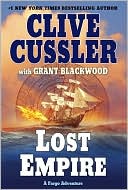Last Night in Twisted River
In 1954, in the cookhouse of a logging and sawmill settlement in northern New Hampshire, an anxious twelve-year-old boy mistakes the local constable’s girlfriend for a bear. Both the twelve-year-old and his father become fugitives, forced to run from Coos County–to Boston, to southern Vermont, to Toronto–pursued by the implacable constable. Their lone protector is a fiercely libertarian logger, once a river driver, who befriends them.\ In a story spanning five decades, Last Night in Twisted...
Search in google:
In 1954, in the cookhouse of a logging and sawmill settlement in northern New Hampshire, an anxious twelve-year-old boy mistakes the local constable’s girlfriend for a bear. Both the twelve-year-old and his father become fugitives, forced to run from Coos County–to Boston, to southern Vermont, to Toronto–pursued by the implacable constable. Their lone protector is a fiercely libertarian logger, once a river driver, who befriends them.In a story spanning five decades, Last Night in Twisted River–John Irving’s twelfth novel–depicts the recent half-century in the United States as “a living replica of Coos County, where lethal hatreds were generally permitted to run their course.” From the novel’s taut opening sentence–“The young Canadian, who could not have been more than fifteen, had hesitated too long”–to its elegiac final chapter, Last Night in Twisted River is written with the historical authenticity and emotional authority of The Cider House Rules and A Prayer for Owen Meany. It is also as violent and disturbing a story as John Irving’s breakthrough bestseller, The World According to Garp.What further distinguishes Last Night in Twisted River is the author’s unmistakable voice–the inimitable voice of an accomplished storyteller. Near the end of this moving novel, John Irving writes: “We don’t always have a choice how we get to know one another. Sometimes, people fall into our lives cleanly–as if out of the sky, or as if there were a direct flight from Heaven to Earth–the same sudden way we lose people, who once seemed they would always be part of our lives.”The New York Times - Michiko KakutaniMr. Irving uses coincidences, cliffhanger chapter endings and other 19th-century novelistic devices to hook the reader, while at the same time orchestrating them to underscore the improbable, random nature of real life. Some of his inventions…are ludicrous at first glance, but the reader gradually comes to understand that they are writerly metaphors for the precarious nature of life in "a world of accidents," that the volume we hold in our hands is, in fact, the creation of Danny, who is trying to make sense of the unlikely trajectory of his life through the act of writing. In this respect Last Night in Twisted River emerges not just as a tall tale, but also as an entertaining, if messy and long-winded, commentary on the fiction-making process itself.
I.\ COOS COUNTY,\ NEW HAMPSHIRE, 1954 \ \ C H A P T E R 1 \ UNDER THE LOGS \ \ The young canadian, who could not have been more than fifteen, had hesitated too long. For a frozen moment, his feet had stopped moving on the floating logs in the basin above the river bend; he'd slipped entirely underwater before anyone could grab his outstretched hand. One of the loggers had reached for the youth's long hair-the older man's fingers groped around in the frigid water, which was thick, almost soupy, with sloughed-off slabs of bark. Then two logs collided hard on the would-be rescuer's arm, breaking his wrist. The carpet of moving logs had completely closed over the young Canadian, who never surfaced; not even a hand or one of his boots broke out of the brown water. Out on a logjam, once the key log was pried loose, the river drivers had to move quickly and continually; if they paused for even a second or two, they would be pitched into the torrent. In a river drive, death among moving logs could occur from a crushing injury, before you had a chance to drown-but drowning was more common. From the riverbank, where the cook and his twelve-year-old son could hear the cursing of the logger whose wrist had been broken, it was immediately apparent that someone was in more serious trouble than the would-be rescuer, who'd freed his injured arm and had managed to regain his footing on the flowing logs. His fellow river drivers ignored him; they moved with small, rapid steps toward shore, calling out the lost boy's name. The loggers ceaselessly prodded with their pike poles, directing the floating logs ahead of them. The rivermen were, for the most part, picking the safest way ashore, but to the cook's hopeful son it seemed that they might have been trying to create a gap of sufficient width for the young Canadian to emerge. In truth, there were now only intermittent gaps between the logs. The boy who'd told them his name was "Angel Pope, from Toronto," was that quickly gone. "Is it Angel?" the twelve-year-old asked his father. This boy, with his dark-brown eyes and intensely serious expression, could have been mistaken for Angel's younger brother, but there was no mistaking the family resemblance that the twelve-year-old bore to his ever-watchful father. The cook had an aura of controlled apprehension about him, as if he routinely anticipated the most unforeseen disasters, and there was something about his son's seriousness that reflected this; in fact, the boy looked so much like his father that several of the woodsmen had expressed their surprise that the son didn't also walk with his dad's pronounced limp. The cook knew too well that indeed it was the young Canadian who had fallen under the logs. It was the cook who'd warned the loggers that Angel was too green for the river drivers' work; the youth should not have been trying to free a logjam. But probably the boy had been eager to please, and maybe the rivermen hadn't noticed him at first. In the cook's opinion, Angel Pope had also been too green (and too clumsy) to be working in the vicinity of the main blade in a sawmill. That was strictly the sawyer's territory -- a highly skilled position in the mills. The planer operator was a relatively skilled position, too, though not particularly dangerous. The more dangerous and less skilled positions included working on the log deck, where logs were rolled into the mill and onto the saw carriage, or unloading logs from the trucks. Before the advent of mechanical loaders, the logs were unloaded by releasing trip bunks on the sides of the trucks-this allowed an entire load to roll off a truck at once. But the trip bunks sometimes failed to release; the men were occasionally caught under a cascade of logs while they were trying to free a bunk. As far as the cook was concerned, Angel shouldn't have been in any position that put the boy in close proximity to moving logs. But the lumberjacks had been as fond of the young Canadian as the cook and his son had been, and Angel had said he was bored working in the kitchen. The youth had wanted more physical labor, and he liked the outdoors. The repeated thunk-thunk of the pike poles, poking the logs, was briefly interrupted by the shouts of the rivermen who had spotted Angel's pike pole-more than fifty yards from where the boy had vanished. The fifteen-foot pole was floating free of the log drive, out where the river currents had carried it away from the logs. The cook could see that the river driver with the broken wrist had come ashore, carrying his pike pole in his good hand. First by the familiarity of his cursing, and only secondarily by the logger's matted hair and tangled beard, did the cook realize that the injured man was Ketchum-no neophyte to the treachery of a log drive. It was April -- not long after the last snowmelt and the start of mud season -- but the ice had only recently broken up in the river basin, the first logs falling through the ice upstream of the basin, on the Dummer ponds. The river was ice-cold and swollen, and many of the lumberjacks had heavy beards and long hair, which would afford them some scant protection from the blackflies in mid-May. Ketchum lay on his back on the riverbank like a beached bear. The moving mass of logs flowed past him. It appeared as if the log drive were a life raft, and the loggers who were still out on the river seemed like castaways at sea -- except that the sea, from one moment to the next, turned from greenish brown to bluish black. The water in Twisted River was richly dyed with tannins. "Shit, Angel!" Ketchum shouted from his back. "I said, 'Move your feet, Angel. You have to keep moving your feet!' Oh, shit." The vast expanse of logs had been no life raft for Angel, who'd surely drowned or been crushed to death in the basin above the river bend, although the lumberjacks (Ketchum among them) would follow the log drive at least to where Twisted River poured into the Pontook Reservoir at Dead Woman Dam. The Pontook Dam on the Androscoggin River had created the reservoir; once the logs were let loose in the Androscoggin, they would next encounter the sorting gaps outside Milan. In Berlin, the Androscoggin dropped two hundred feet in three miles; two paper mills appeared to divide the river at the sorting gaps in Berlin. It was not inconceivable to imagine that young Angel Pope, from Toronto, was on his way there. Come nightfall, the cook and his son were still attempting to salvage leftovers, for tomorrow's meals, from the scores of untouched dinners in the small settlement's dining lodge -- the cookhouse in the so-called town of Twisted River, which was barely larger and only a little less transient than a logging camp. Not long ago, the only dining lodge on a river drive hadn't been a lodge at all. There once was a traveling kitchen that had been permanently built onto a truck body, and an adjacent truck on which a modular dining hall could be taken down and reassembled -- this was when the trucks used to perpetually move camp to another site on Twisted River, wherever the loggers were working next. In those days, except on the weekends, the rivermen rarely went back to the town of Twisted River to eat or sleep. The camp cook had often cooked in a tent. Everything had to be completely portable; even the sleeping shelters were built onto truck bodies. Now nobody knew what would become of the less-than-thriving town of Twisted River, which was situated partway between the river basin and the Dummer ponds. The sawmill workers and their families lived there, and the logging company maintained bunkhouses for the more transient woodsmen, who included not only the French Canadian itinerants but most of the river drivers and the other loggers. The company also maintained a better equipped kitchen, an actual dining lodge- the aforementioned cookhouse -- for the cook and his son. But for how much longer? Not even the owner of the logging company knew. The lumber industry was in transition; it would one day be possible for every worker in the logging business to work from home. The logging camps (and even the slightly less marginal settlements like Twisted River) were dying. The wanigans themselves were disappearing; those curious shelters for sleeping and eating and storing equipment had not only been mounted on trucks, on wheels, or on crawler tracks, but they were often attached to rafts or boats.The Indian dishwasher -- she worked for the cook -- had long ago told the cook's young son that wanigan was from an Abenaki word, leading the boy to wonder if the dishwasher herself was from the Abenaki tribe. Perhaps she just happened to know the origin of the word, or she'd merely claimed to know it. (The cook's son went to school with an Indian boy who'd told him that wanigan was of Algonquian origin.) While it lasted, the work during a river drive was from dawn till dark. It was the protocol in a logging operation to feed the men four times a day. In the past, when the wanigans couldn't get close to a river site, the two midday meals had been trekked to the drivers. The first and last meal were served in the base camp- nowadays, in the dining lodge. But out of their affection for Angel, tonight many of the loggers had missed their last meal in the cookhouse. They'd spent the evening following the log drive, until the darkness had driven them away -- not only the darkness, but also the men's growing awareness that none of them knew if Dead Woman Dam was open. From the basin below the town of Twisted River, the logs -- probably with Angel among them -- might already have flowed into the Pontook Reservoir, but not if Dead Woman Dam was closed. And if the Pontook Dam and Dead Woman were open, the body of the young Canadian would be headed pell-mell down the Androscoggin. No one knew better than Ketchum that there would likely be no finding Angel there. The cook could tell when the river drivers had stopped searching-from the kitchen's screen door, he could hear them leaning their pike poles against the cookhouse. A few of the tired searchers found their way to the dining lodge after dark; the cook didn't have the heart to turn them away. The hired help had all gone home -- everyone but the Indian dishwasher, who stayed late most nights. The cook, whose difficult name was Dominic Baciagalupo -- or "Cookie," as the lumberjacks routinely called him -- made the men a late supper, which his twelve-year-old son served. "Where's Ketchum?" the boy asked his dad. "He's probably getting his arm fixed," the cook replied. "I'll bet he's hungry," the twelve-year-old said, "but Ketchum is wicked tough." "He's impressively tough for a drinking man," Dominic agreed, but he was thinking that maybe Ketchum wasn't tough enough for this. Losing Angel Pope might be hardest on Ketchum, the cook thought, because the veteran logger had taken the young Canadian under his wing. He'd looked after the boy, or he had tried to. Ketchum had the blackest hair and beard-the charred-black color of charcoal, blacker than a black bear's fur. He'd been married young-and more than once. He was estranged from his children, who had grown up and gone their own ways. Ketchum lived year-round in one of the bunkhouses, or in any of several run-down hostelries, if not in a wanigan of his own devising-namely, in the back of his pickup truck, where he had come close to freezing to death on those winter nights when he'd passed out, dead drunk. Yet Ketchum had kept Angel away from alcohol, and he'd kept not a few of the older women at the so-called dance hall away from the young Canadian, too. "You're too young, Angel," the cook had heard Ketchum tell the youth. "Besides, you can catch things from those ladies." Ketchum would know, the cook had thought. Dominic knew that Ketchum had done more damage to himself than breaking his wrist in a river drive. The steady hiss and intermittent flickering of the pilot lights on the gas stove in the cookhouse kitchen -- an old Garland with two ovens and eight burners, and a flame-blackened broiler above -- seemed perfectly in keeping with the lamentations of the loggers over their late supper. They had been charmed by the lost boy, whom they'd adopted as they would a stray pet. The cook had been charmed, too. Perhaps he saw in the unusually cheerful teenager some future incarnation of his twelve-year-old son-for Angel had a welcoming expression and a sincere curiosity, and he exhibited none of the withdrawn sullenness that appeared to afflict the few young men his age in a rough and rudimentary place like Twisted River. This was all the more remarkable because the youth had told them that he'd recently run away from home."You're Italian, aren't you?" Dominic Baciagalupo had asked the boy."I'm not from Italy, I don't speak Italian -- you're not much of an Italian if you come from Toronto," Angel had answered. The cook had held his tongue. Dominic knew a little about Boston Italians; some of them seemed to have issues regarding how Italian they were. And the cook knew that Angel, in the old country, might have been an Angelo. (When Dominic had been a little boy, his mother had called him Angelù-in her Sicilian accent, this sounded like an-geh-LOO.)But after the accident, nothing with Angel Pope's written name could be found; among the boy's few belongings, not a single book or letter identified him. If he'd had any identification, it had gone into the river basin with him -- probably in the pocket of his dungarees -- and if they never located the body, there would be no way to inform Angel's family, or whoever the boy had run away from. Legally or not, and with or without proper papers, Angel Pope had made his way across the Canadian border to New Hampshire. Not the way it was usually done, either-Angel hadn't come from Quebec. He'd made a point of arriving from Ontario -- he was not a French Canadian. The cook hadn't once heard Angel speak a word of French or Italian, and the French Canadians at the camp had wanted nothing to do with the runaway boy -- apparently, they didn't like English Canadians. Angel, for his part, kept his distance from the French; he didn't appear to like the Québécois any better than they liked him. Dominic had respected the boy's privacy; now the cook wished he knew more about Angel Pope, and where he'd come from. Angel had been a good-natured and fair-minded companion for the cook's twelve-year-old son, Daniel-or Danny, as the loggers and the saw-mill men called the boy.Almost every male of working age in Twisted River knew the cook and his son- some women, too. Dominic had needed to know a number of women-mainly, to help him look after his son-for the cook had lost his wife, Danny's young mother, a long-seeming decade ago. Dominic Baciagalupo believed that Angel Pope had had some experience with kitchen work, which the boy had done awkwardly but uncomplainingly, and with an economy of movement that must have been born of familiarity -- despite his professed boredom with cooking-related chores, and his penchant for cutting himself on the cutting board. Moreover, the young Canadian was a reader; he'd borrowed many books that had belonged to Dominic's late wife, and he often read aloud to Daniel. It was Ketchum's opinion that Angel had read Robert Louis Stevenson to young Dan "to excess" -- not only Kidnapped and Treasure Island but his unfinished deathbed novel, St. Ives, which Ketchum said should have died with the author. At the time of the accident on the river, Angel had been reading The Wrecker to Danny. (Ketchum had not yet weighed in with his opinion of that novel.) Well, whatever Angel Pope's background had been, he'd had some schooling, clearly-more than most of the French Canadian woodsmen the cook had known. (More than most of the sawmill workers and the local woodsmen, too.)"Why did Angel have to die?" Danny asked his dad. The twelve-year-old was helping his father wipe down the dining tables after the late-arriving loggers had gone off to bed, or perhaps to drink. And although she often kept herself busy in the cookhouse quite late into the night, at least well past Danny's bedtime, the Indian dishwasher had finished with her chores; by now, she'd driven her truck back to town."Angel didn't have to die, Daniel-it was an avoidable accident."The cook's vocabulary often made reference to avoidable accidents, and his twelve-year-old son was overfamiliar with his father's grim and fatalistic thoughts on human fallibility -- the recklessness of youth, in particular. "He was too green to be out on a river drive," the cook said, as if that were all there was to it. Danny Baciagalupo knew his dad's opinion of all the things Angel, or any boy that age, was too green to do. The cook also would have wanted to keep Angel far away from a peavey. (The peavey's most important feature was the hinged hook that made it possible to roll a heavy log by hand. ) According to Ketchum, the "old days" had been more perilous. Ketchum claimed that working with the horses, pulling the scoots out of the winter woods, was risky work. In the winter, the lumberjacks tramped up into the mountains. They'd cut down the trees and (not that long ago) used horses to pull the timber out, one log at a time. The scoots, or wheelless drays, were dragged like sleds on the frozen snow, which not even the horses' hooves could penetrate because the sled ruts on the horse-haul roads were iced down every night. Then the snowmelt and mud season came, and-"back then," as Ketchum would say -- all the work in the woods was halted. But even this was changing. Since the new logging machinery could work in muddy conditions and haul much longer distances to improved roads, which could be used in all seasons, mud season itself was becoming less of an issue -- and horses were giving way to crawler tractors. The bulldozers made it possible to build a road right to a logging site, where the wood could be hauled out by truck. The trucks moved the wood to a more central drop point on a river, or on a pond or lake; in fact, highway transport would very soon supplant the need for river drives. Gone were the days when a snubbing winch had been used to ease the horses down the steeper slopes. "The teams could slide on their haunches," Ketchum had told young Dan. (Ketchum rated oxen highly, for their steady footing in deep snow, but oxen had never been widely used.) Gone, too, was railroad logging in the woods; it came to an end in the Pemigewasset Valley in '48 -- the same year one of Ketchum's cousins had been killed by a Shay locomotive at the Livermore Falls paper mill. The Shay weighed fifty tons and had been used to pull the last of the rails from the woods. The former railroad beds made for firm haul roads for the trucks in the 1950s, although Ketchum could still remember a murder on the Beebe River Railroad -- back when he'd been the teamster for a bobsled loaded with prime virgin spruce behind a four -- horse rig. Ketchum had been the teamster on one of the early Lombard steam engines, too-the one steered by a horse. The horse had turned the front sled runners, and the teamster sat at the front of the log hauler; later models replaced the horse and teamster with a helmsman at a steering wheel. Ketchum had been a helmsman, too, Danny Baciagalupo knew -- clearly, Ketchum had done everything.
I.Chapter 1. UNDER THE LOGS Chapter 2. DO-SI-DO Chapter 3. A WORLD OF ACCIDENTS Chapter 4. THE EIGHT-INCH CAST-IRON SKILLET II .Chapter 5. NOM DE PLUME Chapter 6. IN MEDIAS RES III .Chapter 7. BENEVENTO AND AVELLINO Chapter 8. DEAD DOG; REMEMBERING MAO'S Chapter 9. THE FRAGILE, UNPREDICTABLE NATURE OF THINGS Chapter 10. LADY SKY Chapter 11. HONEY IV.Chapter 12. THE BLUE MUSTANG Chapter 13. KISSES OF WOLVES V.Chapter 14. KETCHUM'S LEFT HAND Chapter 15. MOOSE DANCING VI.Chapter 16. LOST NATION Chapter 17. KETCHUM EXCEPTED Acknowledgments Sources
\ Michiko KakutaniMr. Irving uses coincidences, cliffhanger chapter endings and other 19th-century novelistic devices to hook the reader, while at the same time orchestrating them to underscore the improbable, random nature of real life. Some of his inventions…are ludicrous at first glance, but the reader gradually comes to understand that they are writerly metaphors for the precarious nature of life in "a world of accidents," that the volume we hold in our hands is, in fact, the creation of Danny, who is trying to make sense of the unlikely trajectory of his life through the act of writing. In this respect Last Night in Twisted River emerges not just as a tall tale, but also as an entertaining, if messy and long-winded, commentary on the fiction-making process itself.\ —The New York Times\ \ \ \ \ Publishers WeeklyIrving (The World According to Garp) returns with a scattershot novel, the overriding themes, locations and sensibilities of which will probably neither surprise longtime fans nor win over the uninitiated. Dominic “Cookie” Baciagalupo and his son, Danny, work the kitchen of a New Hampshire logging camp overlooking the Twisted River, whose currents claimed both Danny's mother and, as the novel opens, mysterious newcomer Angel Pope. Following an Irvingesque appearance of bears, Cookie and Danny's “world of accidents” expands, precipitating a series of adventures both literary and culinary. The ensuing 50-year slog follows the Baciagalupos from a Boston Italian restaurant to an Iowa City Chinese joint and finally a Toronto French cafe, while dovetailing clumsily with Danny's career as the distinctly Irving-like writer Danny Angel. The story's vicariousness is exacerbated by frequent changes of scene, self-conscious injections of how writers must “detach themselves” and a cast of invariably flat characters. With conflict this meandering and characters this limp, reflexive gestures come off like nostalgia and are bound to leave readers wishing Irving had detached himself even more. (Oct.)\ \ \ Library JournalIrving's 12th novel—following Until I Find You (2005), also available from Books on Tape and Random Audio—covers five decades in the lives of three highly memorable characters. Most of Irving's usual themes and icons appear here, from bears to wrestling to unseen fears, as he uses the character of a writer to define his own fiction writing process. Narrator Arthur Morey (The Ministry of Special Cases) shows an impressive grasp of the language in his reading of this father-son love story touched with loss and humor; he especially captures well the cantankerous logger Ketchum, who serves as the book's political compass. Long and demanding but highly worth it; recommended for contemporary fiction audiences. [The New York Times best-selling Random hc was described as being "interesting, funny, and original," LJ 11/1/09; the pb will release in June 2010.—Ed.]—Joyce Kessel, Villa Maria Coll., Buffalo\ \ \ \ \ Kirkus ReviewsIrving's new doorstopper (Until I Find You, 2006, etc.) addresses a strong theme-the role accident plays in even the most carefully planned and managed lives-but doesn't always stick to the subject. His logjam of a narrative focuses on the life and times of Danny Baciagalupo, who navigates the roiling waters of growing up alongside his widowed father Dominic, a crippled logging-camp cook employed by a company that plies its dangerous trade along the zigzag Twisted River, north of New Hampshire's Androscoggin River in Robert Frost's old neighborhood of Coos County. The story begins swiftly and compellingly in 1954, when a river accident claims the life of teenaged Canadian sawmill worker Angel Pope, whom none of his co-workers really know. Irving's characters live in a "world of accidents" whose by-products include Dominic's maiming and the death of his young wife in a mishap similar to Angel's. All is nicely done throughout the novel's assured and precisely detailed early pages. But trouble looms and symbols clash when Danny mistakenly thinks a constable's lady friend is a bear, and admirers of The Cider House Rules (1985) and A Prayer for Owen Meany (1989) will anticipate that Large Meanings prowl these dark woods. The narrative flattens out as we follow the Baciagalupos south to Boston, thence to Iowa (where we're treated to a lengthy account of Danny's studies, surely not unlike Irving's own, at the Iowa Writers' Workshop), and an enormity of specifics and generalizations about Danny's career as bestselling author "Danny Angel." The tale spans 50 years, and Danny's/Irving's penchant for commentary on the psyche, obligations and disappointments of the writer's life makes those yearsfeel like centuries. Will entertain the faithful and annoy readers who think this author has already written the same novel too many times.\ \








